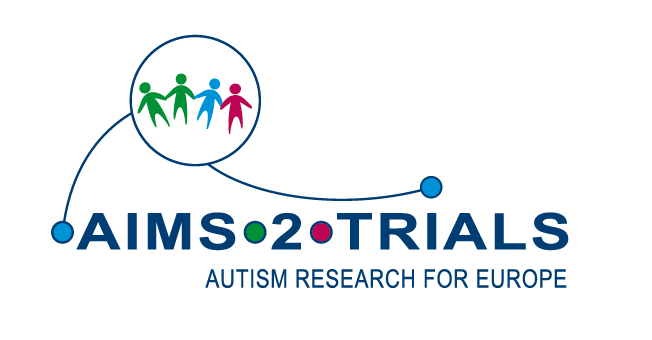Biomarkers

What are biomarkers?
Biomarkers – short for biological markers – are measurable features that help predict how a person may develop over time and how they may respond to interventions. They can be any objective measure, such as the presence of a certain gene, a pattern of brain activity or a score on a questionnaire. Biomarkers could be used in the process of autism diagnosis, to predict who may develop co-occurring symptoms, and to select which interventions, supports or treatments will work best for an individual.
There are different types of biomarker:
- Diagnostic biomarkers help to diagnose autism
- Likelihood biomarkers predict who may develop autism
- Stratification biomarkers group people who share certain characteristics
- Prognostic biomarkers predict future development
- Predictive biomarkers help decide which therapy is suited to different people
AIMS-2-TRIALS biomarker studies
To identify biomarkers, the AIMS-2-TRIALS consortium will employ a wide range of cutting edge research methods, including studies in the following areas:
- Brain activity and behaviours in early life
- Brain activity and behaviours in pre-school children
- The influence of our early environment
- Development in children and adults
- Autism and rare genetic conditions
- Outcome measures
- Biological basis of cognition and behaviour
- The immune system
- Infection and inflammation during pregnancy
Biomarkers and genetics
Some people have concerns about genetic research in autism. For example, some are worried that genetic research could lead to a test during pregnancy to identify whether a baby will develop autism, and that such a test could be used for eugenics. AIMS-2-TRIALS is not developing a genetic test and is ethically opposed to eugenics. It is also unlikely that a genetic test will ever be specific or accurate enough to predict whether a person will develop autism. This is because, for most autistic people, many thousands of common genetic variants contribute to causing their autism and, even then, this genetic predisposition interacts with important environmental factors. The exception to this – in about 5% of autistic people – is that there are a small number of rare genetic variants or mutations that are linked to autism.
Biomarkers beyond medicine
We recognise that while some autistic people and their families do want medicines to treat aspects of their autism or co-occurring conditions, others may prefer non-medical interventions or choose not to receive any support. There are many ways in which our work on biomarkers could inform and support the development of non-medical treatment options.
What next?
Any biomarkers that we identify could next be tested by researchers across the world to confirm that the biomarkers work as expected in people from different places and backgrounds. To make this easier, we will share our data and study designs. When a biomarker is successfully validated, the next step will be to gain approval to use it in tests of new treatments and in clinical practice by liaising with international regulatory authorities.
Objectives
1. Identify biomarkers for autism
2. Confirm that any biomarkers identified also work in larger groups of people and in those from different countries and cultures
3. Integrate any new findings from our studies in people with other findings from research performed in cells and animal models of autism
4. Add data to the central database for management and analysis, which may help to identify sub-groups of autism







